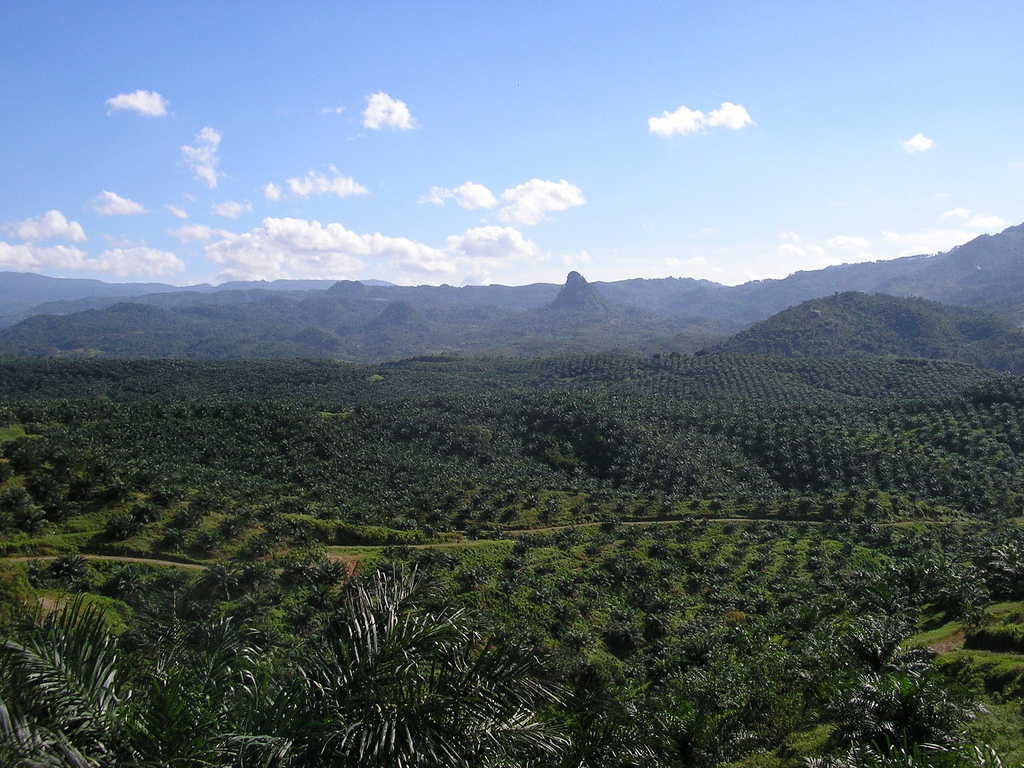
A new study reviews interventions in oil palm management to see which is better for long term sustainability.
These studies will provide further information on differences in local ecology and the effectiveness of interventions in different global regions.
Megan Popkin, Valentine Reiss-Woolever et al
Oil palm expansion is known for its severe environmental impacts, but are there ways to mitigate its harm in order to reap the most from its benefits?
A new study in PLOS Sustainability and Transformation this week presents a review of oil palm management strategies that might support more sustainable cultivation and is the first extensive systematic map of within-plantation oil palm management to directly link environmental outcomes and interventions to sustainability criteria.
The study is co-authored by Gates Cambridge scholars Megan Popkin [2020] and Valentine Reiss-Woolever [2019], who are both doing their PhDs in Zoology, and by Dr Edgar C. Turner from the Department of Zoology at the University of Cambridge and Dr Sarah H. Luke, Assistant Professor in Environmental Sciences at the University of Nottingham.
Despite its environmental impact, oil palm has many advantages: it has the highest yield per hectare of any vegetable oil crop and has a higher potential than many other crops to support high complexity habitats with minimal chemical input and relatively high levels of biodiversity and ecosystem functioning.
The new study maps all available evidence assessing within-plantation oil palm management practices at the cultivation stage, with a focus on practices that affect biodiversity and environmental processes.
Using approaches adapted from systematic review protocols, it catalogues oil palm management publications to provide details of geographic location, year, interventions [ie agricultural practices], targeted outcomes of these practices, co-occurrences between different practices and outcomes and study design.
It found that most studies were conducted in Southeast Asia, with fewer studies conducted in South America or Africa. Twenty-six different interventions were found across six categories: soil, understory, within-crop, landscape-level, replanting and mixed/multiple interventions. The most common interventions that were tested were landscape-scale interventions, such as maintaining forest fragments/buffer zones, whereas interventions involved in replanting were the least researched.
Eight outcomes were considered: soil fertility, soil erosion, water quality and availability, pest control, replanting, maintenance of biodiversity and areas of high conservation value and reducing air pollution and greenhouse gas emissions.
Studies researching biodiversity were the most common, whereas comparatively few studies considered replanting and reducing emissions.
The researchers found that most primary studies were observational, with experimental studies being less common, especially in biodiversity research. The findings were matched to the Roundtable on Sustainable Palm Oil’s environmental sustainability criteria to illustrate how policymakers and producers could use the map to access evidence supporting cultivation-stage oil palm sustainability management. The researchers hope their study provides valuable information to inform best management practices and direction for necessary future research.
They state: “These studies will provide further information on differences in local ecology and the effectiveness of interventions in different global regions. We also encourage future investigation of the current evidence base on potential management options to foster increased social sustainability, as well as similar investigations to increase the understanding of interactions between environmental and social factors towards developing more-sustainable oil palm management practices.”
*Picture credit: View of palm oil plantation in Cigudeg, Bogor by Achmad Rabin Taim from Jakarta, Indonesia, courtesy of Wikimedia commons.












